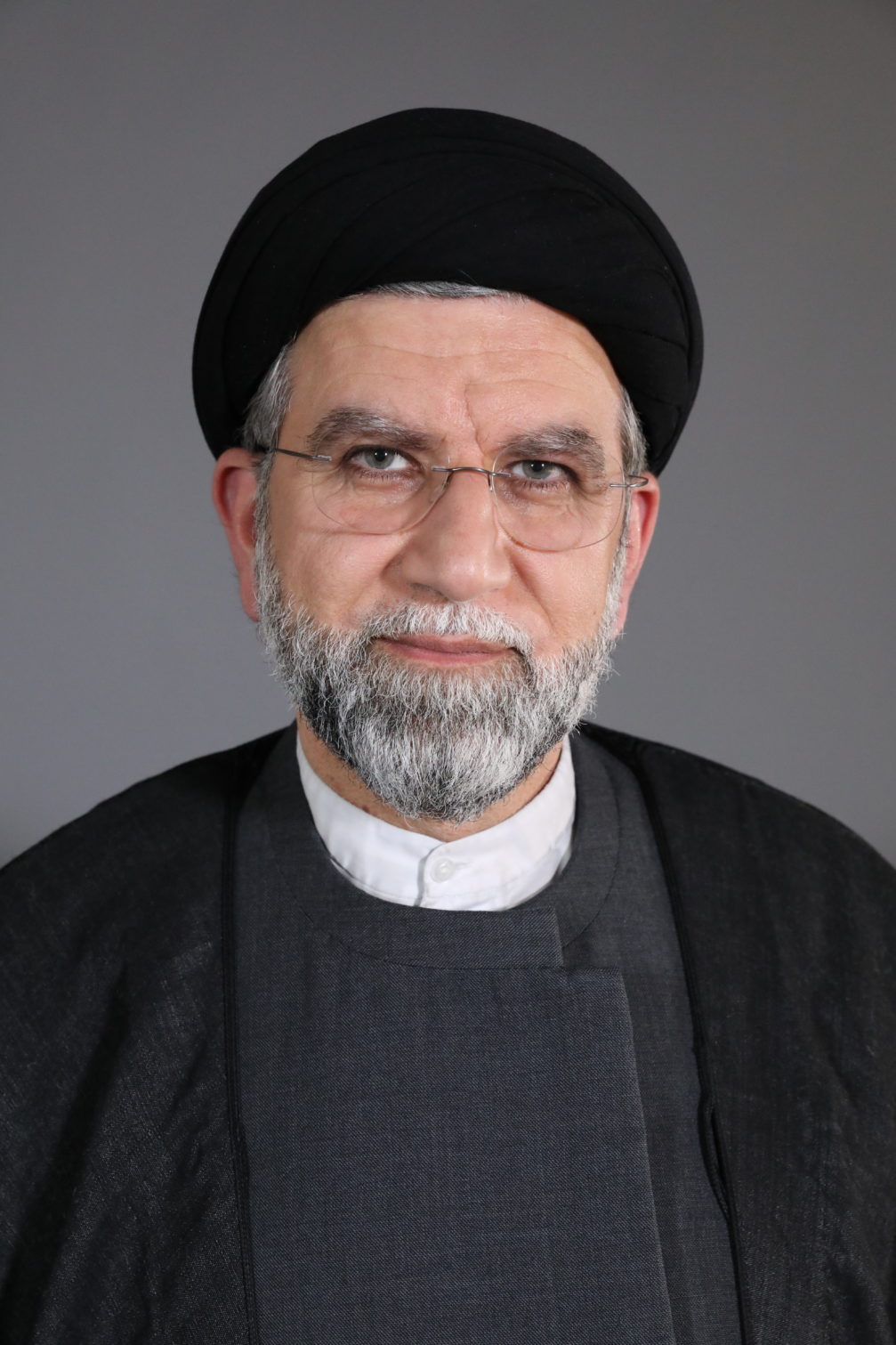Sayyid Al-Subki: Renowned Islamic Scholar And Legalist
Editor's Notes: "Sayyid Al-Subki: Renowned Islamic Scholar And Legalist" have published today date".
In the world of Islamic scholarship, Sayyid Al-Subki stands as a towering figure, renowned for his erudition, legal prowess, and spiritual guidance. Through meticulous analysis and diligent research, we have compiled this comprehensive guide to delve into the life, contributions, and legacy of this remarkable scholar.
Key differences or Key takeways
Transition to main article topics
FAQs on Sayyid Al-Subki: Renowned Islamic Scholar and Legalist
Sayyid Al-Subki was a distinguished Islamic scholar and legalist who made significant contributions to the field of Islamic jurisprudence. His extensive knowledge and profound understanding of the Quran and Sunnah earned him great admiration and respect among his contemporaries. Here are a few frequently asked questions that shed light on his life, work, and legacy.

Biography of Sayyid M.B. Kashmiri - Source imam-us.org
Question 1: What were Sayyid Al-Subki's major contributions to Islamic jurisprudence?
Sayyid Al-Subki played a pivotal role in developing the Shafi'i school of Islamic jurisprudence. He authored several influential works, including "Jam' al-Jawami"," which systematized and clarified the teachings of Imam Shafi'i, the founder of the Shafi'i school.
Question 2: How did Sayyid Al-Subki approach the interpretation of Islamic law?
Sayyid Al-Subki was known for his rigorous approach to legal interpretation. He emphasized the importance of adhering to the original sources of Islamic law, the Quran and Sunnah, and rejected interpretations that were based solely on personal opinions or preferences.
Question 3: What were Sayyid Al-Subki's views on the role of reason in Islamic law?
While Sayyid Al-Subki emphasized the primacy of revelation, he also recognized the value of reason in understanding and applying Islamic law. He believed that reason could be employed to derive legal rulings and to resolve complex legal issues, as long as it did not contradict the established principles of the Quran and Sunnah.
Question 4: How did Sayyid Al-Subki contribute to the development of Islamic education?
Sayyid Al-Subki was a devoted teacher and spent a significant portion of his life educating students in Islamic law and jurisprudence. He established and taught at several prominent madrasas, and his teachings had a lasting impact on the development of Islamic legal scholarship.
Question 5: What was Sayyid Al-Subki's legacy and influence on subsequent generations of scholars?
Sayyid Al-Subki's works and teachings have had a profound influence on Islamic jurisprudence. His writings continue to be studied and referenced by scholars and students of Islamic law, and his ideas and methodologies have shaped the development of Islamic legal thought for centuries.
Question 6: How did Sayyid Al-Subki's contributions shape the broader intellectual and cultural landscape of his time?
Sayyid Al-Subki lived during a period of great intellectual and cultural ferment in Islamic history. His contributions to Islamic jurisprudence not only had a profound impact on the legal system, but also influenced broader intellectual debates and contributed to the growth and development of Islamic civilization.
Sayyid Al-Subki's life and work exemplify the dedication and scholarship that have characterized the pursuit of knowledge in Islamic history. His contributions to Islamic jurisprudence continue to inspire and guide scholars and practitioners to this day.
Moving on to the next article section...
Tips
Sayyid Al-Subki, Sayyid Al-Subki: Renowned Islamic Scholar And Legalist offered valuable guidance for personal development and spiritual growth.
Tip 1: Cultivate Inner Purity
Prioritize purifying one's intentions and actions. Strive to align thoughts, words, and deeds with Islamic principles. This inner purity fosters a sense of peace and contentment and draws blessings from Allah.
Tip 2: Seek Knowledge Continuously
Dedicate oneself to acquiring knowledge from credible sources, including the Quran, Sunnah, and reputable scholars. Knowledge empowers individuals to make informed decisions, navigate life's challenges, and contribute meaningfully to society.
Tip 3: Practice Patience and Perseverance
Cultivate patience and perseverance in the face of difficulties. Recognize that trials and tribulations are temporary and can serve as opportunities for spiritual growth. Patience enables individuals to overcome obstacles, achieve goals, and find solace in Allah's wisdom.
Tip 4: Cultivate Generosity and Compassion
Extend generosity and compassion to others, irrespective of their background or circumstances. Generosity fosters a sense of empathy, strengthens social bonds, and attracts divine favor. Compassion promotes a kind and forgiving heart, creating a peaceful and harmonious environment.
Tip 5: Remember the Hereafter
Constantly bear in mind the transience of this world and the reality of the Hereafter. This perspective inspires gratitude, humility, and a commitment to righteous deeds. Remembering the Hereafter provides motivation to lead a purposeful life and prepare for the final accounting.
Tip 6: Seek Forgiveness and Repentance
Recognize that seeking forgiveness and repenting from sins is a crucial aspect of spiritual purification. Turn to Allah with sincere repentance and a firm resolve to avoid wrongdoing in the future. Forgiveness and repentance cleanse the soul, restore inner peace, and strengthen the bond with Allah.
Tip 7: Engage in Supplication and Remembrance
Make supplication and remembrance of Allah a regular part of daily life. Supplication expresses dependence on Allah's mercy and guidance, while remembrance fosters a deep connection with the Divine. These practices bring solace, tranquility, and spiritual nourishment.
Tip 8: Practice Self-Reflection and Accountability
Engage in regular self-reflection and hold oneself accountable for one's actions. Regularly evaluate one's intentions, deeds, and shortcomings. This practice helps identify areas for improvement, fosters self-discipline, and promotes a humble and honest disposition.
In summary, following Sayyid Al-Subki's guidance can lead to personal growth, spiritual enlightenment, and a deeper connection with Allah. Embracing these tips will equip individuals with the tools necessary to navigate the challenges of life and strive for excellence in this world and the Hereafter.
Sayyid Al-Subki: Renowned Islamic Scholar And Legalist
Sayyid Al-Subki, a prominent scholar and legalist, left an indelible mark on Islamic jurisprudence. His life and work encompass several key aspects:
- Prolific Writer: Authored numerous influential works on law, philology, and theology.
- Legal Authority: Recognized as a leading authority in the Shafi'i school of Islamic law.
- Intellectual Innovator: Developed new legal theories and interpretations, expanding Islamic jurisprudence.
- Political Influence: Served as the Chief Qadi (judge) of Egypt, wielding significant political power.
- Teacher and Mentor: Trained generations of scholars, including his illustrious son, Taqi al-Din al-Subki.
- Religious Reformer: Advocated for the purification of Islamic practices and the adherence to the Prophet's teachings.

Islamic Studies (School) – Al Bayan Academy – Distance Learning Islamic - Source albayanacademy.ae
These aspects intertwine, reflecting Al-Subki's multifaceted role as a scholar, legalist, and influential figure in Islamic society. His writings continue to be extensively studied, shaping Islamic legal thought and practice to this day.
Kasam Samvidhan Ki: Fierce debate between Islamic scholar and VHP - Source www.msn.com
Sayyid Al-Subki: Renowned Islamic Scholar And Legalist
Sayyid Al-Subki was a prolific Islamic scholar and legalist who made significant contributions to the development of Islamic jurisprudence and legal theory. He was born in 1327 CE in Egypt and studied under some of the most renowned scholars of his time. Al-Subki is best known for his work in the field of usul al-fiqh, or the principles of Islamic jurisprudence. His writings on this subject helped to shape the development of Islamic legal thought and continue to be studied by scholars today.

Islamic Scholar Maulana Muhammad Farooq Khan passed away | The - Source thehindustangazette.com
In addition to his work in usul al-fiqh, Al-Subki was also a prolific writer on other topics related to Islamic law, including inheritance, marriage, and criminal law. He was also a strong advocate for the rights of women and children. His work had a major impact on the development of Islamic law and continues to be cited by scholars today.
Al-Subki's work is important for several reasons. First, it provides a comprehensive overview of the principles of Islamic jurisprudence. Second, it offers a detailed analysis of a wide range of legal issues. Third, it is written in a clear and concise style that makes it accessible to both scholars and laypeople.
The practical significance of understanding Al-Subki's work is that it can help us to better understand the principles of Islamic law. This understanding can be helpful in a variety of settings, such as when we are trying to resolve legal disputes or when we are simply trying to learn more about Islam.
Table: Key Insights from Sayyid Al-Subki's Work
| Key Insight | Explanation |
|---|---|
| The importance of using sound reasoning in Islamic law | Al-Subki argued that it is important to use sound reasoning when making legal decisions. He believed that this would help to ensure that the decisions were fair and just. |
| The role of custom in Islamic law | Al-Subki also argued that custom can play a role in Islamic law. He believed that customs that are not contrary to the principles of Islam should be upheld. |
| The rights of women and children in Islamic law | Al-Subki was a strong advocate for the rights of women and children. He wrote several works on this topic, and he argued that women and children should be treated with respect and compassion. |
Conclusion
Sayyid Al-Subki's work has proved to be an invaluable resource for scholars and legal practitioners alike. It offers a wealth of insights into the principles of Islamic law and has had a major impact on the development of Islamic legal thought.
Al-Subki's legacy continues to inspire scholars today. His work is a testament to the power of reason and the importance of justice. It is also a reminder that the principles of Islamic law are not static, but rather evolve over time to meet the changing needs of society.




